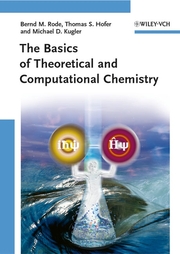Detailansicht
The Basics of Theoretical and Computational Chemistry
ISBN/EAN: 9783527317738
Umbreit-Nr.: 1194718
Sprache:
Englisch
Umfang: X, 185 S., 6 s/w Illustr., 31 farbige Illustr., 8
Format in cm: 1.6 x 24.5 x 17.7
Einband:
gebundenes Buch
Erschienen am 26.01.2007
Auflage: 1/2007
€ 92,90
(inklusive MwSt.)
Nachfragen
